Behind the Glass: Day Two – When the System Shows Itself
Nov 05, 2025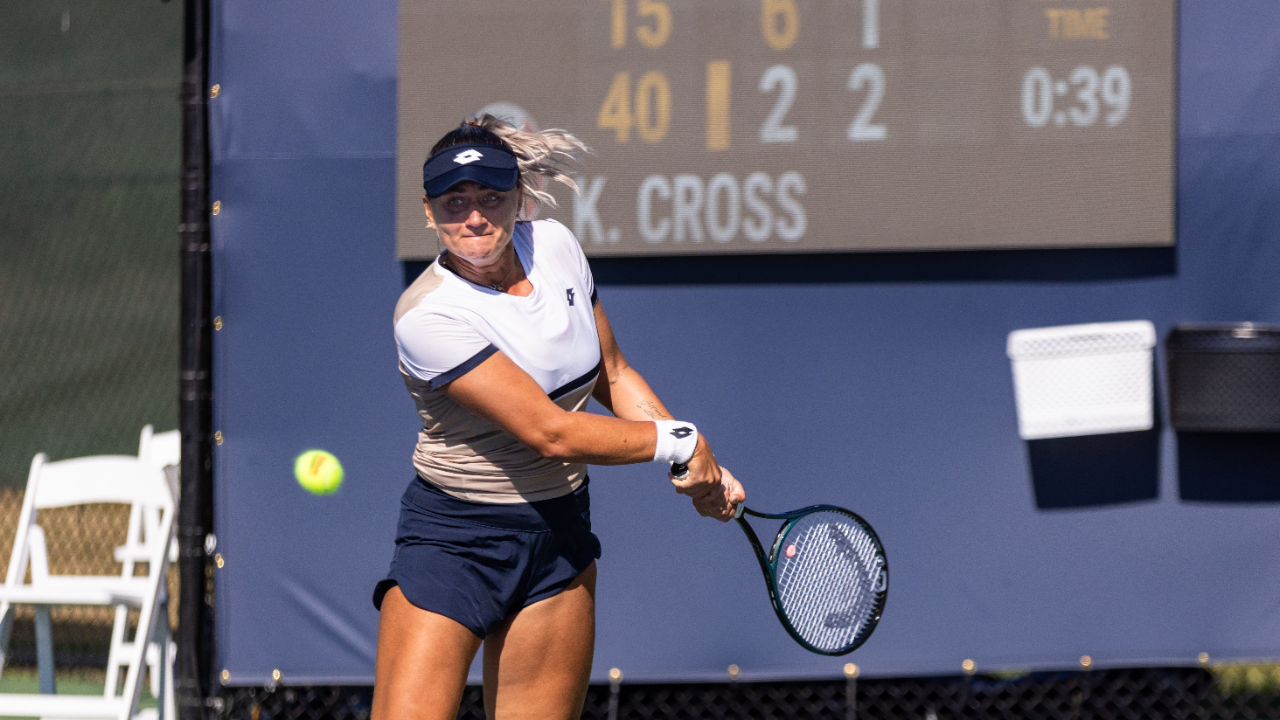
Day Two at the Austin 125 brought me back to a place I had hoped never to revisit. Sitting courtside with a media credential, I could see both the beauty and the strain that exist inside professional tennis. To be clear, what I witnessed was not behind-the-scenes disorganization or any lapse in tournament management. The DropShot Series has run this event with professionalism and precision, and Austin Tennis Academy has been a gracious, efficient host. What surfaced instead was something far older and deeper: the culture of the sport itself, the way pressure, identity, and insecurity continue to shape too many interactions at this level.
You did not need special access to sense it. Anyone sitting close enough could see it unfold. Players complained about matters that had nothing to do with their matches. Spectators shouted unsolicited advice toward competitors who were already carrying the weight of their own expectations. Conversations around the grounds were filled with opinions but short on understanding. None of this reflected poorly on the event. It was simply the professional tennis world revealing its familiar dissonance, a pattern that travels with the tour wherever it goes.
The irony is that the structure around it was nearly flawless. DropShot’s operational rhythm was smooth, the ATA staff coordinated seamlessly, and the atmosphere struck a rare balance between community and professionalism. Yet within that framework, the human side of the sport exposed its fragility. The system, when viewed up close, still struggles to hold the people who live inside it.
Then, unexpectedly, a moment of calm appeared.
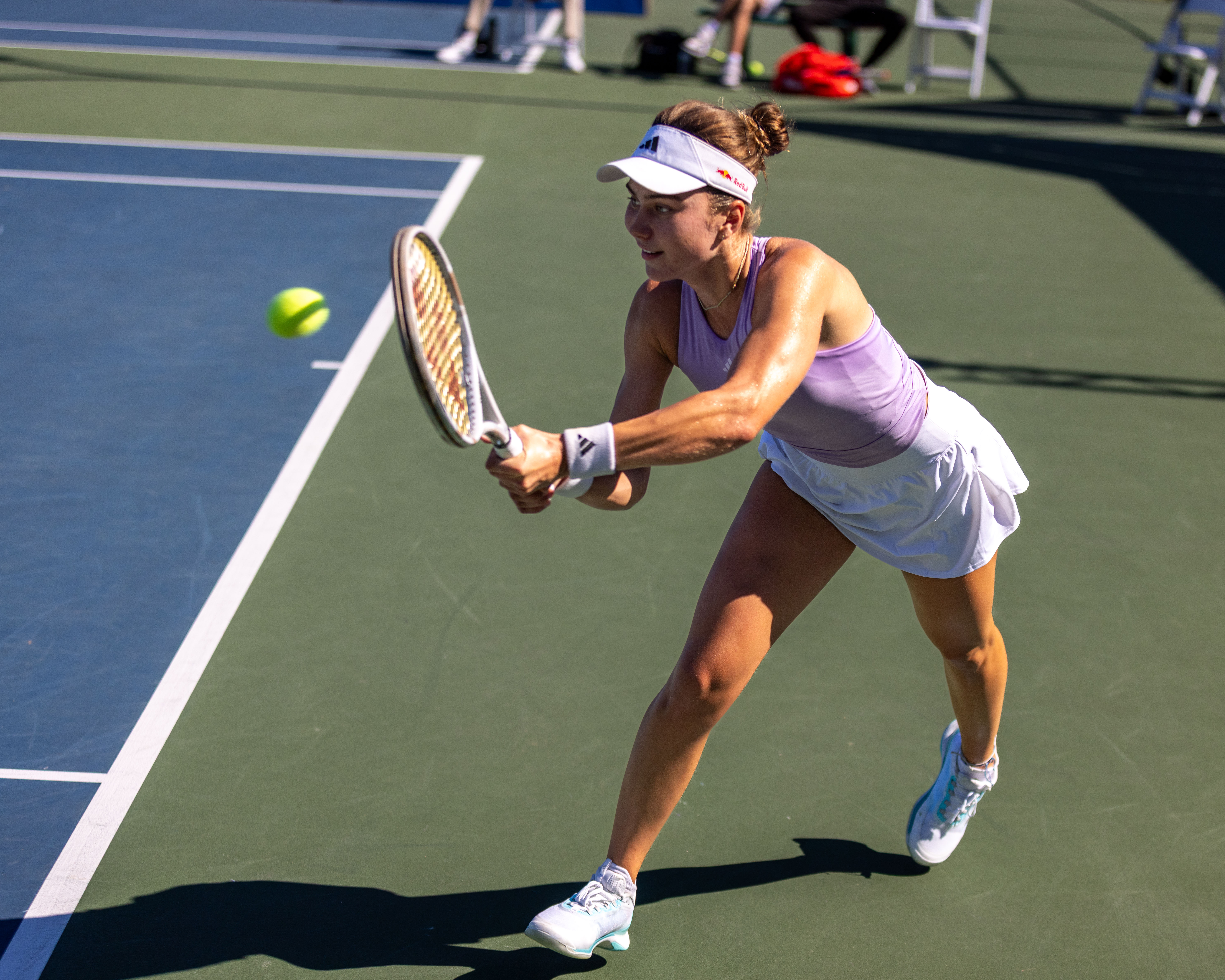 Iva Jovic, now seventeen, played with the steadiness of someone far older. Her posture, movement, and emotional control created a sense of gravity on the court. There was no wasted motion, no visible frustration, only focus. In an interview she did with Lisa Stone about twenty months ago, she spoke about reflecting after every match, learning faster from losses than from wins, and staying calm because it helps her think instead of react. She said, “I’m not scared of losing. I’m scared of not getting better.” That line, coming from a fifteen-year-old at the time, revealed a mindset that most professionals spend years trying to build. Watching her reminded me that the sport still produces clarity when curiosity and composure outweigh ego and noise.
Iva Jovic, now seventeen, played with the steadiness of someone far older. Her posture, movement, and emotional control created a sense of gravity on the court. There was no wasted motion, no visible frustration, only focus. In an interview she did with Lisa Stone about twenty months ago, she spoke about reflecting after every match, learning faster from losses than from wins, and staying calm because it helps her think instead of react. She said, “I’m not scared of losing. I’m scared of not getting better.” That line, coming from a fifteen-year-old at the time, revealed a mindset that most professionals spend years trying to build. Watching her reminded me that the sport still produces clarity when curiosity and composure outweigh ego and noise.
Her presence also carried me backward in time. Twenty years ago, when I was coaching Cory Ann Avants, I remember seeing Varvara Lepchenko on similar entry lists. 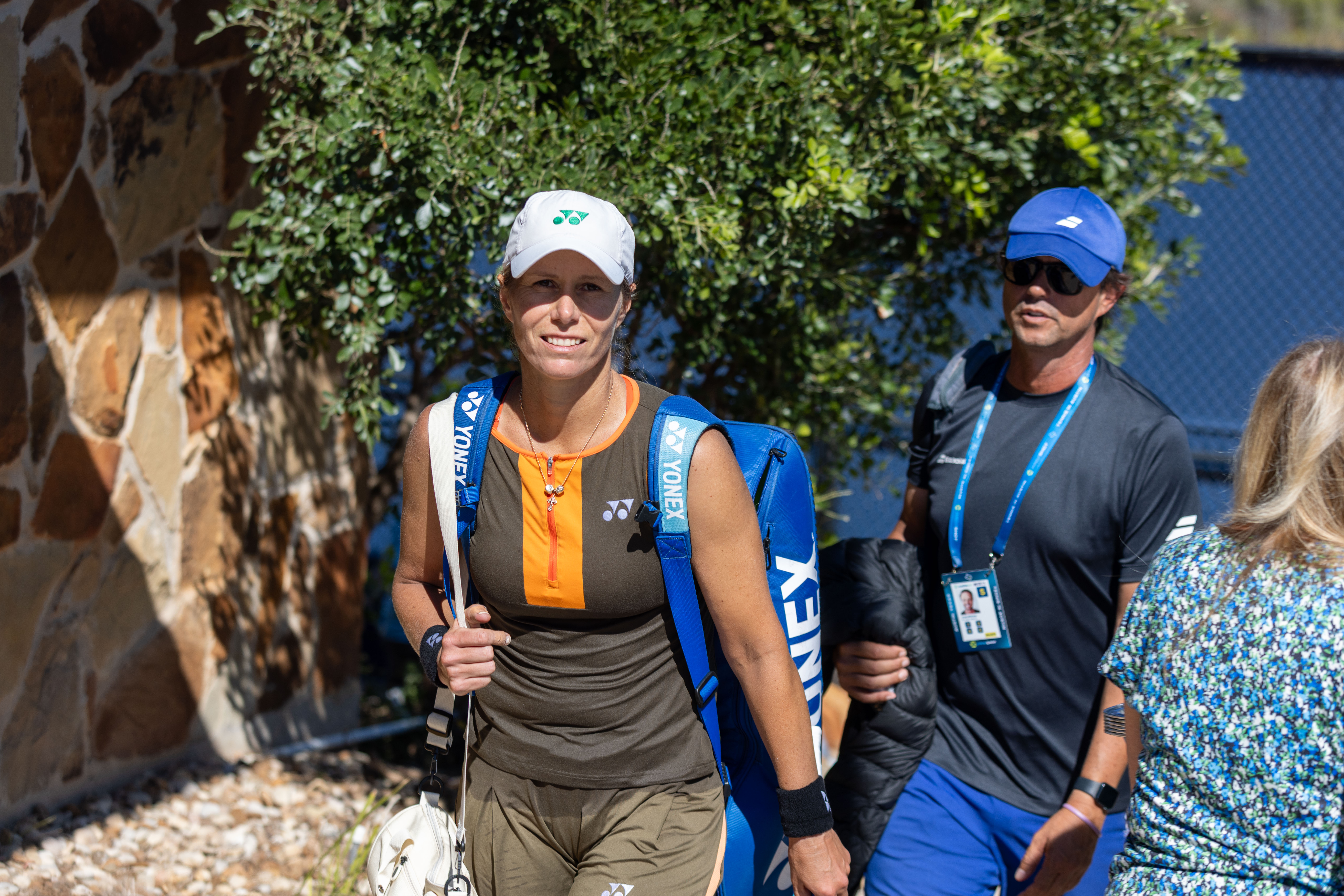 She is still here, still competing, now at thirty-nine. Her career has stretched across two generations of players, surviving shifts in ranking systems, sponsorship models, and the public’s attention span. Lepchenko is more than a competitor; she is part of the living architecture of women’s tennis. Her endurance and reinvention give this event historical texture. Watching her this week felt like looking through a window into the sport’s long memory.
She is still here, still competing, now at thirty-nine. Her career has stretched across two generations of players, surviving shifts in ranking systems, sponsorship models, and the public’s attention span. Lepchenko is more than a competitor; she is part of the living architecture of women’s tennis. Her endurance and reinvention give this event historical texture. Watching her this week felt like looking through a window into the sport’s long memory.
Later that afternoon, I spent time with Jennifer Jackson, a nineteen-year-old from Austin Tennis Academy who earned a main-draw wildcard. Her coach, Doug Davis, spoke afterward about routines, belief, and the slow work of learning to belong. 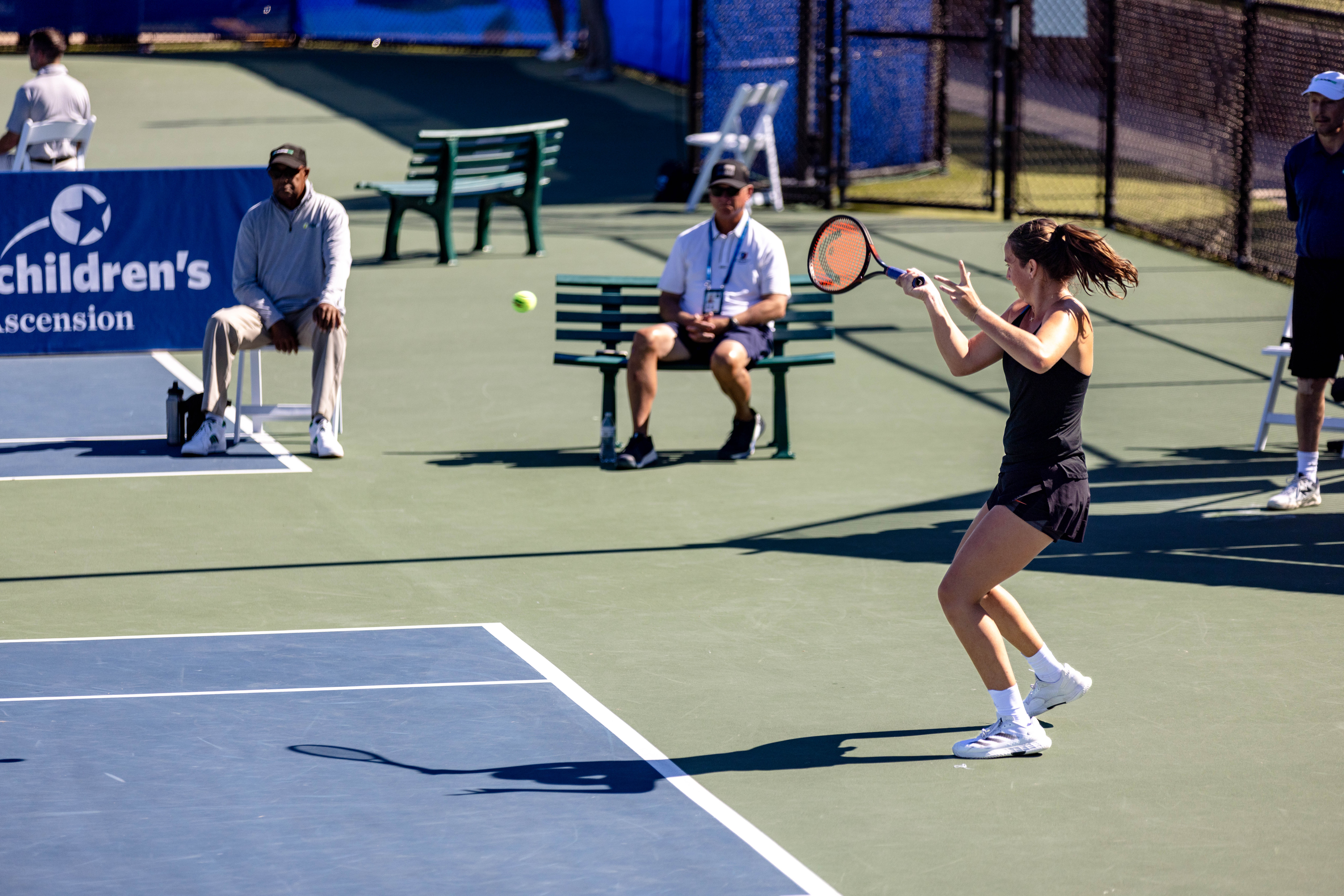 He described the process as a progression: first you prepare like a professional, then you convince yourself you belong, and only then do you start hunting for results. It is a perspective rooted in the long view of development, the kind every parent or player could apply beyond sport.
He described the process as a progression: first you prepare like a professional, then you convince yourself you belong, and only then do you start hunting for results. It is a perspective rooted in the long view of development, the kind every parent or player could apply beyond sport.
Jennifer’s match ended in defeat, but the learning value was obvious. She talked afterward about nerves and how difficult it was to execute her plan once the lights came on. Nothing felt normal, she said. The timing was off, the rhythm elusive. Her honesty was refreshing because it revealed how development actually unfolds. Growth is rarely elegant. It happens in moments when the system overwhelms you and you still manage to take a lesson from the wreckage.
What struck me most was the comparison between Jennifer and Iva. They are only two years apart, yet their outlooks seem to come from different eras. Iva speaks as if she already understands her own operating system. Jennifer is still building hers, still learning to separate what she feels from what she knows. Their differences are not in talent but in how they frame experience. One interprets the process. The other is still learning to trust it.
That distinction points toward a deeper systemic challenge. Too many players are trained for compliance instead of agency. They learn to perform instructions rather than perceive patterns. They become excellent executors but uncertain decision-makers. The sport’s machinery rewards obedience long before it rewards understanding, and that imbalance carries upward into the professional game. It shows itself in how players handle adversity, how they talk about loss, and how they rebuild confidence after failure.
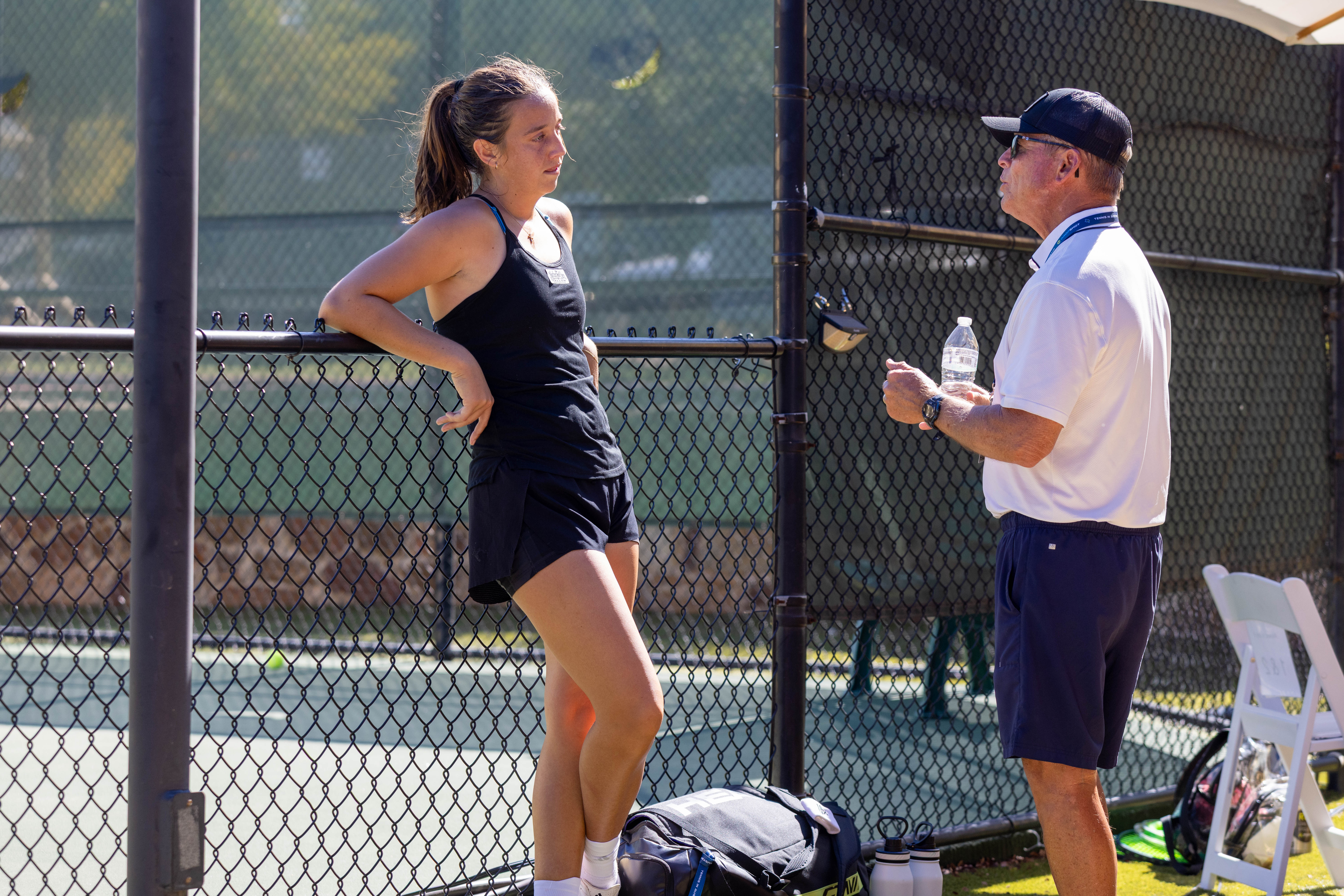 Coach Davis’s emphasis on writing “scripts and playbooks” mirrors what athletes in other sports have practiced for decades. Baseball players review at-bats between innings. Football teams adjust schemes in real time. Tennis, however, still treats reflection as optional, as though thinking too much might break the spell of instinct. The result is a culture that prizes reaction over reason. For a sport that demands intelligence, it often resists introspection.
Coach Davis’s emphasis on writing “scripts and playbooks” mirrors what athletes in other sports have practiced for decades. Baseball players review at-bats between innings. Football teams adjust schemes in real time. Tennis, however, still treats reflection as optional, as though thinking too much might break the spell of instinct. The result is a culture that prizes reaction over reason. For a sport that demands intelligence, it often resists introspection.
So Day Two was not about results. It was about context. It was about youth beside experience, anxiety beside calm, and the system beside its survivors. It was about a seventeen-year-old who understands composure and a thirty-nine-year-old who still embodies persistence. It was about the visible gap between those who are trained to perform and those who have learned to think.
From my seat behind the glass, what I saw was not dysfunction in an event. It was the living tension inside the sport itself, the part no scoreboard can measure.
The more I watch, the more I believe tennis does not just need better athletes. It needs better architecture.
Never Miss a Moment
Join the mailing list to ensure you stay up to date on all things real.
I hate SPAM too. I'll never sell your information.
